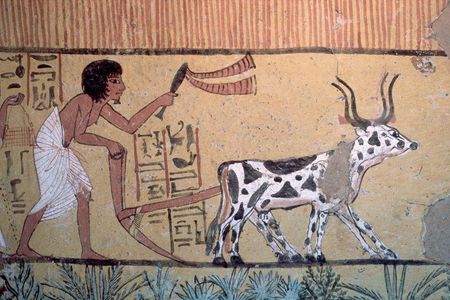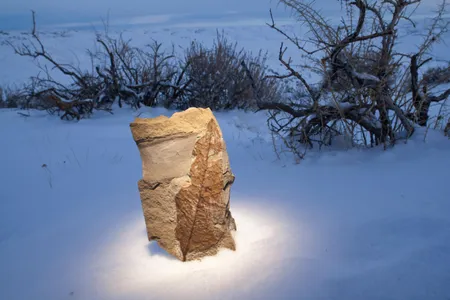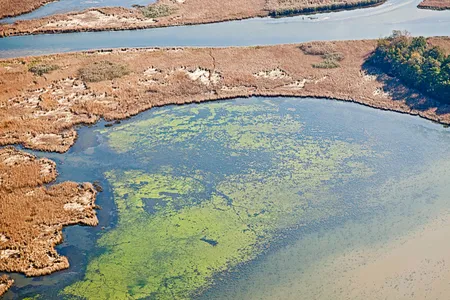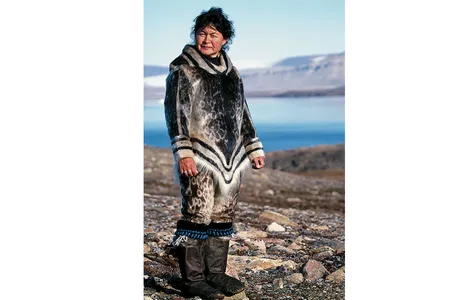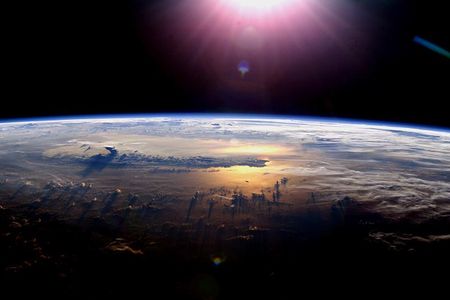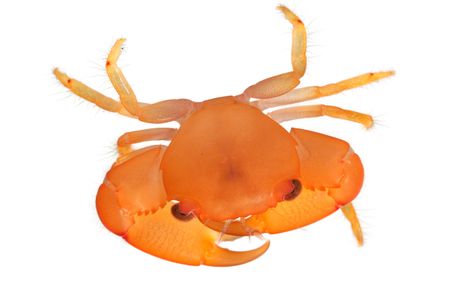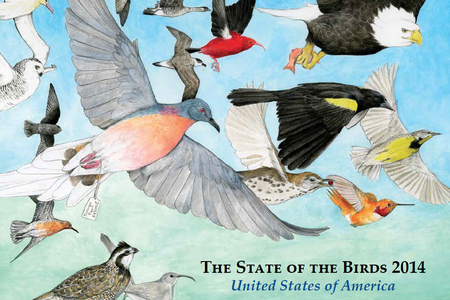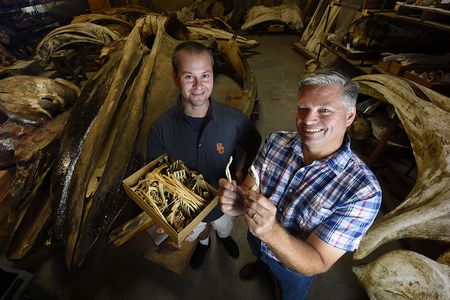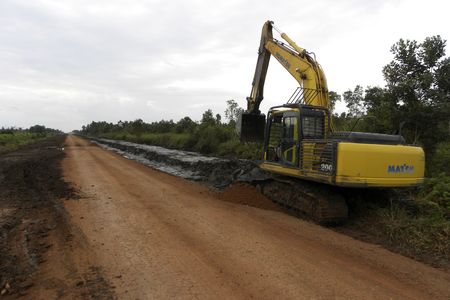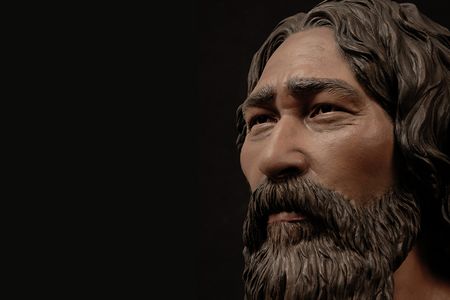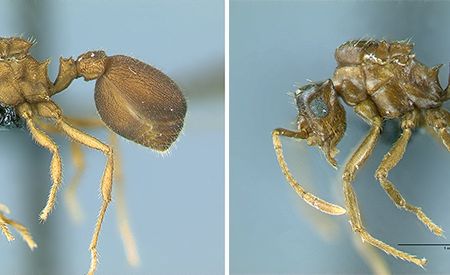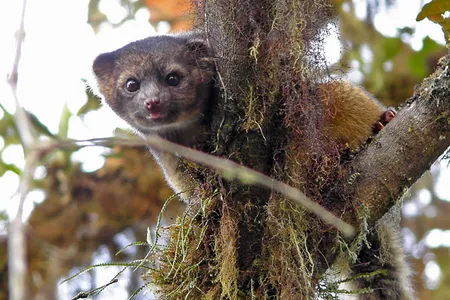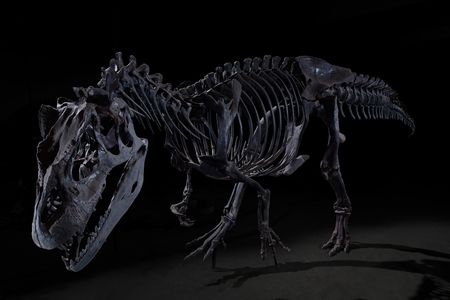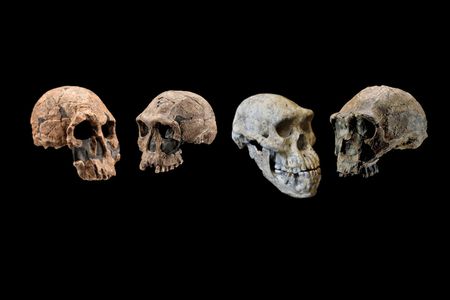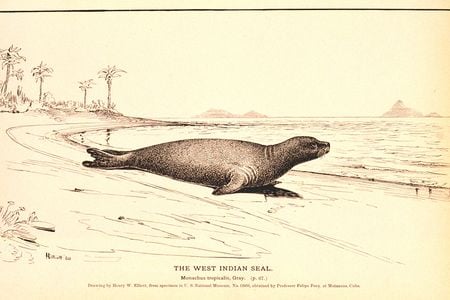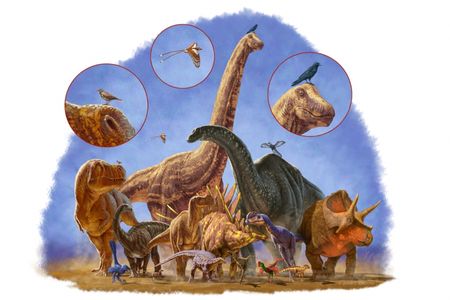New Super-Earths Double the Number of Life-Friendly Worlds
Three studies looking at small, rocky planets are helping astronomers figure out how common worlds like ours are in the galaxy
Switching to Farming Made Human Joint Bones Lighter
A more fragile skeleton evolved about 12,000 years ago, probably driven by a shift from hunting to agriculture
Ancient Earth Warmed Dramatically After a One-Two Carbon Punch
A period of intense warming 55 million years ago is an even better case study for modern climate change than previously suspected
Ocean Dead Zones Are Getting Worse Globally Due to Climate Change
Warmer waters and other factors will cause nearly all areas of low oxygen to grow by the end of the century
To Survive Climate Change, We Should Be More Like the Eskimos
Arctic Studies Center director Bill Fitzhugh says that studying northern cultures can help people adapt to climate change
Making Super-Telescopes Requires Some Creative Engineering
The Giant Magellan Telescope, under construction in Chile, could help scientists answer big questions about the universe
The Smithsonian Institution Announces an Official Climate Change Statement
The bold assessment acknowledges that the global climate is warming because of human activities
Crabby Tenants Defend Corals From Marauding Predators
A diversity of coral guard-crabs is needed to fend off attacks by hungry snails and giant spiky sea stars
The Most Extensive Report Ever on American Birds Says There’s Cause for Concern
Researchers from 23 groups just released the fifth State of the Birds report, which contains good and bad news
Promiscuous Whales Make Good Use of Their Pelvises
Hips don’t lie: Whale pelvic bones are not vestigial but instead evolved to help the marine mammals maneuver better during sex
The Best and Worst Places to Build More Roads
Road works today are “basically chaos”—but a new global road map could be key to protecting agriculture and nature
The Kennewick Man Finally Freed to Share His Secrets
He’s the most important human skeleton ever found in North America—and here, for the first time, is his story
This Ant Species May Support a Controversial Theory on Evolution
New research suggests that species don’t have to be geographically separated in order to evolve
One Year After Discovery, Crowdsourcing the Olinguito
A year ago, researchers discovered a rare new species. That was just the beginning
Why the Dinosaurs Could Have Had a Chance of Surviving the Asteroid Strike
A new study suggests it wasn’t just the asteroid that killed the dinos, but that other factors weakened their ability to survive it
Ability to Adapt Gave Early Humans the Edge Over Other Hominins
Features thought to be characteristic of early Homo lineages actually evolved before Homo arose. Rather, our flexible nature defines us
To Discover What Life Was Like in 19th Century D.C., a Smithsonian Scientist Investigates a Tomb
Forensic anthropologist Douglas Owsley digs into an 1835 vault and reveals the startling history of a famous Washington family
Arctic Shipping: Good For Invasive Species, Bad For the Rest of Nature
A pair of Smithsonian marine biologists argue that a warming Arctic puts the area at risk for inviting invasive species
For the First Time in More Than 100 Years, Scientists Discover New Seal Genus
The now extinct Caribbean monk seal shares an evolutionary connection with the endangered Hawaiian monk seal—one more reason to save the species
Ancient Birds Avoided Mass Extinction By Shrinking
The shrinkage process was well underway before an asteroid brought doom to the dinosaurs 66 million years ago
Page 12 of 13

